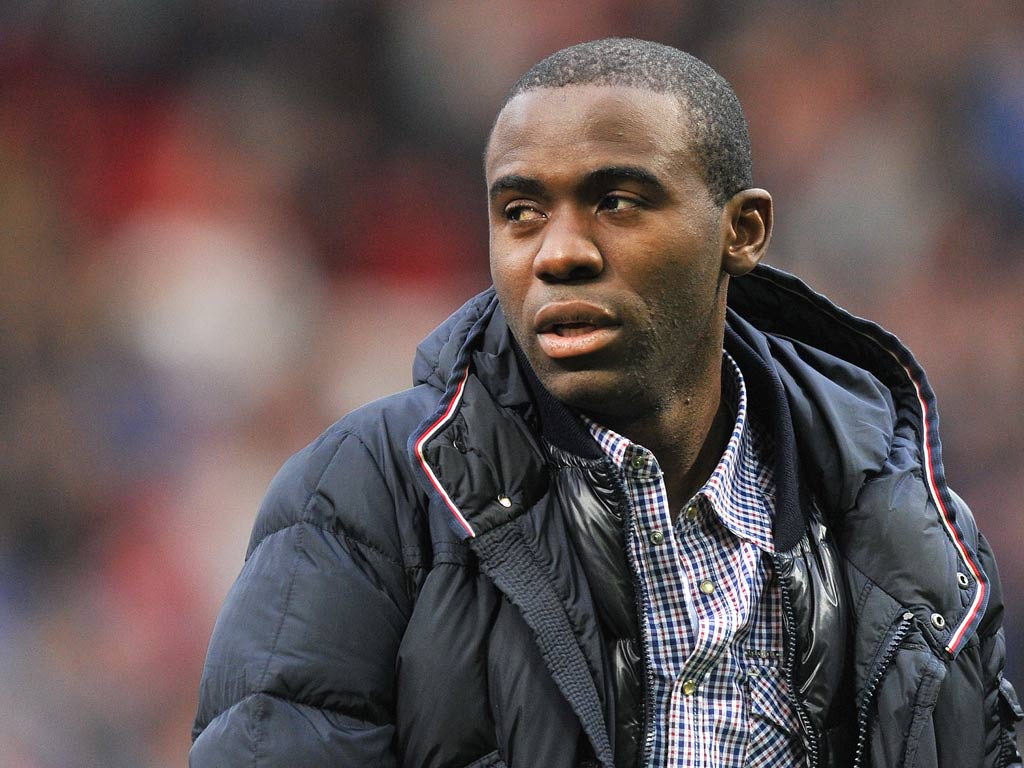Sports Personality of the Year, Fabrice Muamba and why we should beware mixing sport and real-life dramas
The footballler, who has recovered from a cardiac arrest, was presented as an exhibit


In a narrow, sporting, sense, 2012 was, I think we can agree, an annus mirabilis. But just because Britain staged a successful Olympic Games, because we discovered heroes of track and field who won an unprecedented number of gold medals, because we have a tennis player capable of beating the world's best, and because our golfers have swept all before them, it doesn't necessarily mean that we have all had a good time this past year. Many Britons will enter 2013 feeling fearful and insecure as the effects of the economic squeeze hit home, and the glow of Olympic glory is but a distant and imprecise memory.
Yet for three hours on Sunday night, you could be forgiven for thinking that the emotional temperature of the entire nation was set by our sporting achievements. The BBC did a magnificent job of presenting the Sports Personality of the Year – and were rewarded with a huge audience of 14.5 million – but at times it was difficult to believe that sport is nothing more than a glorious distraction.
Sure, it was all "amazing" and "incredible" – these adjectives flowed like a torrent from performers and presenters alike – but the drive to make sport – literally – a matter of life and death made me feel just a little uncomfortable. The award to Martine Wright, who lost both legs in the London bombings of 2005 and went on to compete in the Paralympics, was one thing – an inspiring tale that illustrated sport's ability to unlock the human spirit – but the introduction to the proceedings of the footballer Fabrice Muamba, who was struck down with cardiac failure, was quite another. Of course, the story of Muamba is a remarkable and ultimately cheery one, and who would deny the doctors who saved his life a moment in the spotlight.
But this was essentially a medical story, and I couldn't help feeling that we were being manipulated to believe that sporting and real-life dramas were interchangeable. The approach tipped over into mawkishness, and Muamba himself was presented as if he were an exhibit. This may be an unpopular view, but it is honestly held.
At the time of the Olympics, when I dared to suggest that patriotic fervour had got the better of us, I was castigated as a miserablist by, among many others, Gary Lineker. So I am nothing if not consistent. And in a year when my football team won the Premier League in the most dramatic circumstances imaginable, you'd think I might be able to get behind the idea that sporting success can have a profound effect on people's lives.
I believe we have learned a lot about ourselves from sport this year, not least about the wonderfully polyglot nature of our nation, and about the way in which volunteer help can be made to service the greater good. But after three hours when the nation's lachrymal ducts were flowing, when sporting success brought tears of joy, through our TVs came the latest news from America. We felt bad about our own crying. It's been a wonderful year of sport, but don't confuse it with real life.
Join our commenting forum
Join thought-provoking conversations, follow other Independent readers and see their replies
Comments
Bookmark popover
Removed from bookmarks